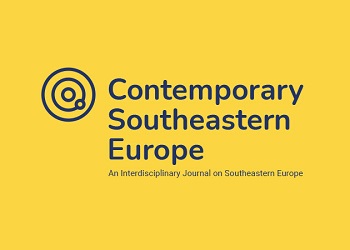National Promotion and Eurovision: from Besieged Sarajevo to the Floodlights of Europe
National Promotion and Eurovision: from Besieged Sarajevo to the Floodlights of Europe
Author(s): Neven AndjelicSubject(s): Music, Nationalism Studies, Identity of Collectives
Published by: Universität Graz
Keywords: Eurovision;Bosnia and Herzegovina;Yugoslavia; Music;Politics; Nationalism;Identity;
Summary/Abstract: The Eurovision Song Contest, as an important part of the entertainmentindustry, has offered European countries a platform for nationalpromotion. The original format has developed over 60 years and has comeunder scrutiny and criticism as allegations of block voting, politics andnationalism have been raised. It has also been argued that similarity ofcultures, linguistic connections, and close national identities, rather thannational interests and politics, are what actually bring countries togetherin this competition. This study has two focuses in an attempt to determinewhat role the contest has had for participating countries and how theyhave used it. The first focus is on analysing historical incidents at thecompetition when countries have attempted to politicise the contest. Thesecond focus and the main part of the study is a thorough investigationinto the organisation of the first Bosnian-Herzegovinian delegation toparticipate in Eurovision, their escape from besieged Sarajevo and theirparticipation at the contest in Ireland in 1993. After taking into accountthe history of the contest and the specific case study of Bosnia-Herzegovina in 1993, the conclusion is that, although cultural similaritiesexist, the politics of national promotion do also play an important role inthe competition and, in countries sending such entries, actually influencesaudiences at home towards stronger national pride and self-identification.Therefore, one might argue that the festival has been hijacked from theentertainment industry by political leaderships, especially those that havebased their legitimacy on nationalism. Hence the success stories comingfrom the “New Europe”.
Journal: Contemporary Southeastern Europe
- Issue Year: 2/2015
- Issue No: 1
- Page Range: 94-109
- Page Count: 16
- Language: English

